News
State Police: Reps Commit To Provide Needed Framework, Legislation, Oversight
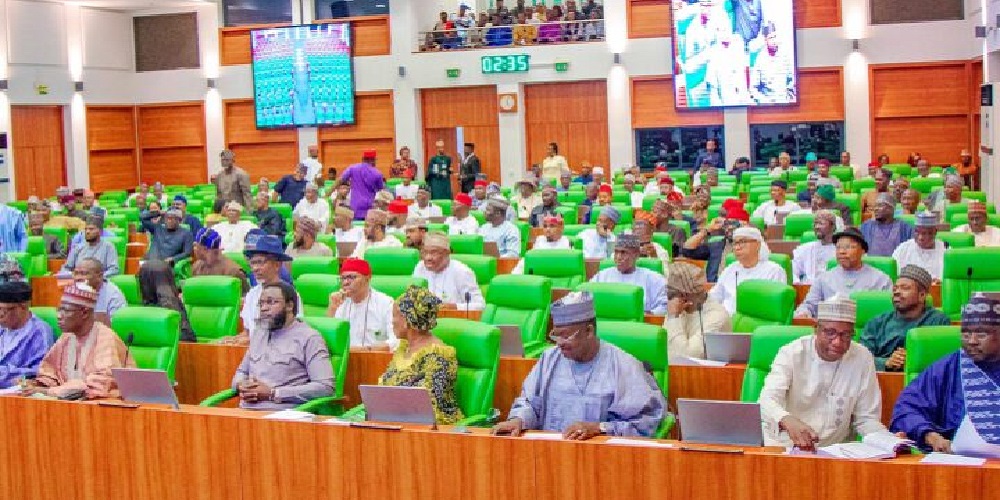
By Gloria Ikibah
The Deputy Speaker of the House of Representatives, Rep. Benjamin Kalu, has reiterated the commitment of the National Assembly to providing the right frameworks, legislation, and oversight to make state policing work for the betterment of Nigerians.
Kalu stated this at a one-day National Dialogue on State Policing with he Theme: Pathways to Peace: Reimagining
Policing in Nigeria, said the dialogue will look into critical issues, gather valuable insights, and explore data-driven approaches.
He said: “We understand the importance of getting this right.
“The information and recommendations gathered here will be crucial in shaping the future of policing in Nigeria
“We are optimistic that through collaborative efforts and a commitment to evidence-based solutions, we can establish a policing system that is not
only effective in combating crime but also earns the trust of Nigerians and
cooperation between law enforcement and the communities they serve”.
The Deputy Speaker explained that with about 370,000 police officers in Nigeria, the ratio of one police is 1:600 which is way higher that the United Nations ratio of 1 police to 450 people.
This he is not enough to attend to the humongous security challenges bedeviling the country.
“The escalating security challenges facing our country demand innovative
solutions and candid discussions. The National Assembly, particularly the
House of Representatives, recognizes the gravity of this situation and is
firmly committed to exploring all viable options that will lead to a safer and
more secure Nigeria for its citizens.
“The United Nations recommends a police-to-citizen ratio of 1:450 (one police officer per 600 citizens). Regrettably, Nigeria’s current reality falls far short of this benchmark. As reported by the Inspector-General of Police (IGP) in November 2023, Nigeria has a national police force of approximately
370,000 officers. This translates to a concerning ratio of roughly one officer
per 600 citizens. This significant understaffing is further compounded by resource deficiencies.
“Since 2016, estimates suggest over ₦5 billion has been paid in ransoms to
kidnappers, a figure that starkly exposes the alarming growth of this
criminal enterprise in the country. Furthermore, the 2024 Global Terrorism
Index paints a concerning picture, ranking Nigeria fourth in Sub-Saharan
Africa and eighth globally for countries most impacted by terrorism.
These statistics underscore the urgent need for a multi-layered policing
approach that prioritizes local security and enables a more responsive
policing environment in Nigeria.
“The Nigerian Discourse: Divergent Paths
Nigerians are understandably divided in their proposed solutions to the
nation’s security challenges. One school of thought advocates for a return
to multilayered policing. Proponents of this approach argue for the
re-establishment of state police forces to operate alongside the existing
federal police structure. They believe this competitive model would
incentivize states to prioritize security within their territories, ultimately
attracting businesses and residents while boosting state economies
through increased job creation and tax revenue.
“Conversely, others maintain that the current unitary system can be
reformed to address security concerns. These individuals acknowledge
shortcomings in past policing practices but believe a revamped federal
model can be optimized for improved national security. It is pertinent to
note that regardless of these arguments, the subnationals in Nigeria
already practice some forms of multi-layered policing – from the Amotekun
in the South West to the Ebube-Agu in the South East as with the pioneer
Civilian Joint Task Force (CJTF) in the North East geopolitical zone.
“The House of Representatives is currently considering Bill HB.617, a
Constitution Alteration Bill on State Policing sponsored by myself and
thirteen esteemed colleagues. This national dialogue presents a valuable
opportunity for cross-fertilization of ideas on the most effective path
towards establishing state policing in Nigeria. Through open discussions
and a thorough examination of all perspectives, we can identify the optimal
strategy for a more secure and peaceful Nigeria”, Kalu added.
News
Pastor sentenced to 10 yrs improvement for defiling four-year-old girl in Abia
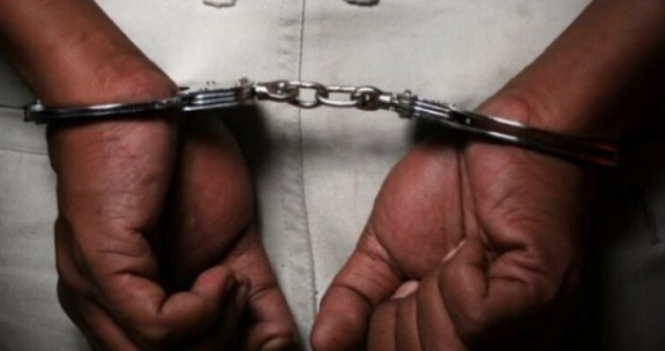
By Kayode Sanni-Arewa
A Magistrate Court in Umuahia North Magisterial District has sentenced Pastor Uche Arua Kalu, 40 years old, to 10 years imprisonment without an option of fine for defiling a four-year-old girl in Amaogudu Abiriba, in Ohafia Local Government Area of Abia State.
The judgment was delivered on Friday, March 7, 2025, by His Worship Onuoha U.C. after the defendant pleaded guilty to the crime.
During the hearing, the Investigating Police Officer, ASP Iweajunwa, who was called upon to present the facts of the case, was able to convincingly establish a case against the defendant after the defendant, Pastor Uche Arua Kalu had denied knowledge of his offence, thereby contradicting his earlier guilty plea on December 20, 2024.
The prosecuting counsel, Chinedu Ikpa Esq., from the State Criminal Investigation Department, Umuahia, had reminded the court that the defendant had already confessed in the charge sheet, admitting that he had no idea what came over him when he committed the grievous crime.
The prosecution had presented undeniable evidence against the accused, including his confession and the IPO’s investigative report.
Citing the case of Uket v. The State (2024) LPELR – 80009 (CA), the prosecution emphasised that for a defilement case to be proved, three key elements must be established, including that the victim must be underage, the accused must have engaged in sexual intercourse with the child and that the child’s consent is irrelevant in such cases.
In a desperate plea for leniency, the defendant fell to his knees, begging the court for mercy and a reduced sentence and expressed his fears of facing life imprisonment under Section 7(1)(2) of the Violence Against Persons Prohibition Law 2019, under which he was charged.
Earlier, the mother of the victim, a widow, Madam Ugo Obasi, had narrated that the defendant was close to the family, and had taken advantage of her absence to work that day to lure the girl to his house where he defiled the minor.
According to her, on coming back from work, the victim was lying critically ill and unable to eat, bathe and walk well. Upon enquiry, the little girl, name withheld, informed the mother of what happened, stating that the defendant was initially unrepentant until the maternal father of the victim stepped into the matter, having reported it to the police.
She pleaded with the government at all levels to come to her assistance.
News
Nigeria, UAE ready to resolve visa issues
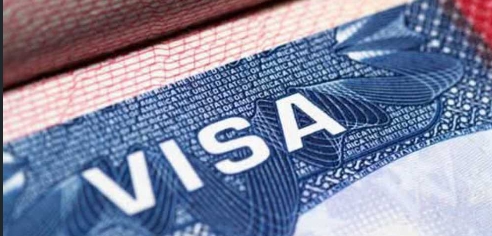
By Kayode Sanni-Arewa
Nigeria and the United Arab Emirates are set to meet in the coming days to resolve ongoing issues concerning visa applications of Nigerians seeking to travel to the UAE.
The decision was made following a courtesy visit by the UAE Ambassador to Nigeria, Salem Alshamsi, to the Minister of State for Foreign Affairs, Ambassador Bianca Odumegwu-Ojukwu, at the Ministry of Foreign Affairs.
This is according to a statement signed by the minister’s media aide, Magnus Eze, on Sunday.
Nigerians have faced challenges in obtaining UAE visas, particularly for tourism purposes.
In 2022, the UAE imposed a visa ban on Nigeria due to various diplomatic disputes.
Dubai’s Emirates Airline halted flights to Nigeria because the Central Bank of Nigeria couldn’t remit an estimated $85m in revenue to the UAE.
However, in July 2024, the Federal Government announced that UAE had lifted the visa restriction following an agreement between both countries.
The Minister of Information and National Orientation, Mohammed Idris, said Nigerian passport holders could now travel to the UAE without any hindrance.
He also asked Nigerians seeking information on the updated UAE visa conditions can visit documentverificationhub.ae for further details.
During the meeting with the UAE ambassador, Odumegwu-Ojukwu acknowledged the strong diplomatic relations and strategic partnerships between Nigeria and the UAE.
She emphasised that Nigeria had remained committed to nurturing this relationship, which has spanned several years.
Odumegwu-Ojukwu noted that Dubai has become a popular destination for many Nigerians, with approximately 12,000 Nigerians living in the UAE.
These individuals, she noted, range from unskilled workers to professionals and students.
According to the statement, in 2015, nearly one million Nigerians visited the UAE, spending between $100m and $150m on visas alone and over $1bn on shopping, tourism, and other related economic activities.
The minister pointed out that the economic relations between both countries appeared to be largely one-sided and called for more areas of collaboration that could better serve Nigeria’s economic interests.
She also addressed concerns raised by Nigerians, including government officials, about the status of UAE visas, requesting clarification on whether new visa policies had been introduced.
There have been numerous concerns about the status of visas for the UAE. Even some top government officials are worried, and they raise their concerns.
“Is there a new visa policy for UAE? You need to let Nigerians know. We need to know what to tell our citizenry. Nigerians have invested massively in property in UAE, hosting conferences and tourism.”
Additionally, Odumegwu-Ojukwu revealed that a joint commission would soon be hosted in Nigeria, following the one held by the UAE in 2022.
This meeting will address various bilateral issues, such as power, renewable energy, and other areas of collaboration.
The minister expressed hope that the joint commission would provide an opportunity to finalise outstanding memoranda of understanding and make progress on shared economic goals.
“We want to reciprocate by hosting the joint commission in Nigeria. There are several bilateral issues such as power, renewable energy and the rest things that we need to deliberate.
“We hope that with the joint commission, we will be able to handle those MoUs that have not been treated. And we will achieve a lot,” the minister said.
She also thanked the UAE for its recent donation of relief materials to Nigeria’s flood victims and vaccines for chickenpox patients, which have supported the country’s health institutions.
In his remarks, Ambassador Alshamsi congratulated Odumegwu-Ojukwu on her recent appointment and expressed his satisfaction with the achievements in Nigeria-UAE relations over the past 50 years.
He assured the minister that he had issued numerous visas to both government officials and private individuals and stated his commitment to resolving the visa challenges facing Nigerians.
Since his arrival in Nigeria over a year ago, Alshamsi said he had issued over 700 tourism visas and would continue working to improve the process.
He also mentioned that several agreements had already been signed, with more planned before the Nigerian President’s scheduled visit to the UAE in the second quarter of the year.
The envoy noted, “We have increased visa issuance through the agent. I have had zero visa rejections since I came to Nigeria. Since I arrived a year and a half ago, I have made sure that I issue visas. We have issued over 700 tourism visas from July 2024.
“Sometimes, we might disagree on some issues, but there is nothing personal. But we could still resolve and agree. We want you to see us as part of your team; we are partners.
“We have signed three or four agreements and would soon sign another major agreement. We must try and sign more agreements before our President’s visit to Nigeria in the second quarter of this year.
“But we would hold a meeting to resolve these issues.”l
News
Man ‘vanishes’ as girlfriend found d3ad in Lagos apartment

By Kayode Sanni-Arewa
An unidentified boyfriend of a graduate of Lagos State University identified simply as Adija has ‘vanished’ after his girlfriend was found dead in his apartment located in the Meiran area of the state.
It was gathered on Sunday that the incident occurred on February 26 when the lady visited her boyfriend following his request.
An Instagram user, @Eyeopener, who shared details of the incident in a post, disclosed that Adija’s family became concerned when she did not pick up her calls prompting them to check on her at her boyfriend’s place as she had notified them of her destination.
The user narrated that upon getting to the apartment, the door was locked and they broke it to gain entrance where they discovered Adija’s lifeless body.
@Eyeopener wrote, “The couple had been dating since her 100-level days, and their relationship had always been toxic. The victim, whose parents reside in Ketu, often spent weekdays at her boyfriend’s place, only going home on weekends.
“On Wednesday night, around 8:30 pm, she received a call from him and went to see him. However, by the next morning, her phone kept ringing with no response. Concerned about her whereabouts, her family, knowing she was likely at her boyfriend’s house, went to check on her.
“Upon arrival, they found the door locked. When they finally managed to force it open, they were met with a tragic sight – her lifeless body on the bed, covered with a duvet.”
@Eyeopener added that neighbours noted that they heard noise from the apartment but did not bother to check on them because it had become a recurring noise.
“Neighbours reported hearing her voice on Wednesday night but did not intervene, as fights between the couple were frequent. It wasn’t until the tragic discovery that they realised the worst had happened. Meanwhile, the boyfriend has since absconded.”
When our correspondent reached out to Adija’s family on Sunday, they declined to comment on the matter at that moment.
The victim’s sister, who chose to remain unnamed, in a telephone conversation revealed that the family would speak with the press at an appropriate time.
Meanwhile, a close relative of the family, identified as Tosin, told our correspondent in an exclusive conversation on Sunday that Adija’s mother was a single mum who had been solely responsible for raising and educating her children.
Tosin said, “The woman suffered so much raising them. She’s a single mum, and the lady in question was an easy-going person.
“Some days ago, I heard that the guy was calling the mother, saying he’s also ready to die.”
Confirming the incident in a telephone conversation with our correspondent on Sunday, the spokesperson for the Lagos State Police Command, Benjamin Hundeyin, said the police were making efforts to arrest the suspect.
Efforts are ongoing to apprehend the suspect,” Hundeyin said in a terse message.
PUNCH Metro also reported on Friday that the Ogun State Police Command launched a manhunt for a man simply identified as Oju, from Calabar, Cross River, who reportedly stabbed his 36-year-old wife, Josephine Isaac, to death in the Agbure community, Ogun Waterside Local Government Area of the state.
The spokesperson for the Ogun State Police Command, Omolola Odutola, disclosed that one Blessing Isaac, the younger sister of the deceased, reported the tragic incident to the Abigi Police Division on Thursday at about 9:30 am.
Blessing reportedly informed the police that, at about 1 am on Thursday, Josephine, who was married to the suspect, had a violent dispute with him. In the process, he allegedly stabbed his wife multiple times in the neck, leaving her dead.
Punch
-
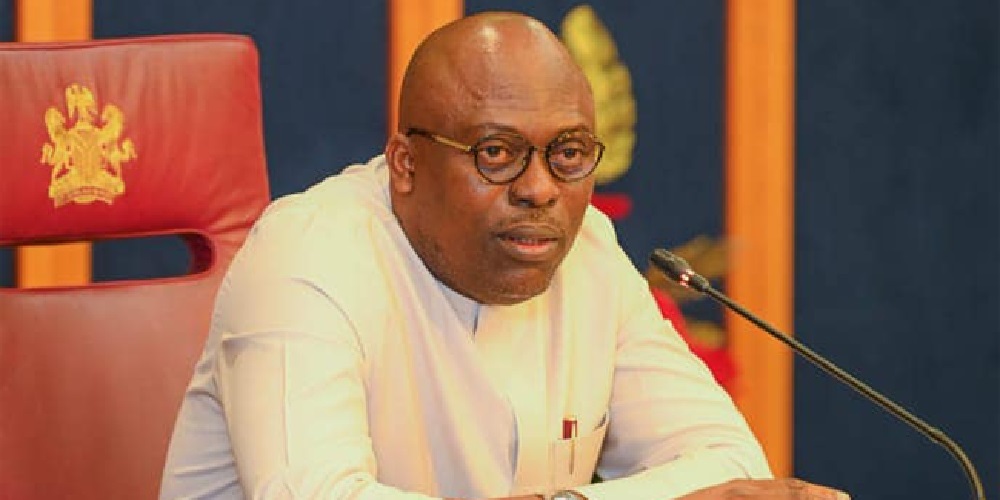
 News16 hours ago
News16 hours agoRivers crisis: Fubara finally bows, invites authentic lawmakers to meeting, offers to pay all outstanding allowances
-
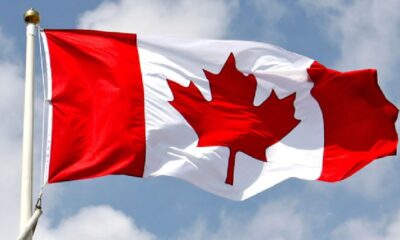
 News15 hours ago
News15 hours agoJapa Bad side: “ How I Lost My Husband the Day We Arrived In Canada”
-
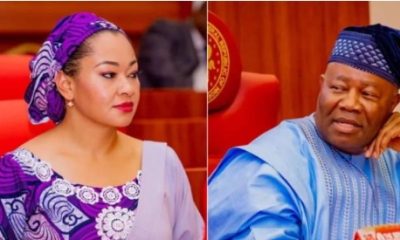
 News13 hours ago
News13 hours agoNatasha: “You Can’t Be Master In Judgment Over Your Case-Ex-First Lady Bombs Akpabio
-

 News15 hours ago
News15 hours agoBREAKING: Miyetti Allah leader shot dead by unidentified gunmen
-
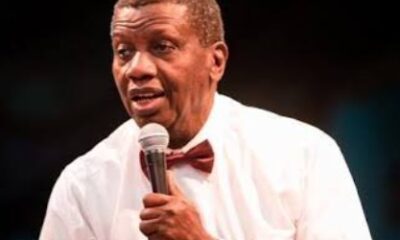
 News22 hours ago
News22 hours agoPastor Adeboye narrates how he collapsed in Ilesha
-
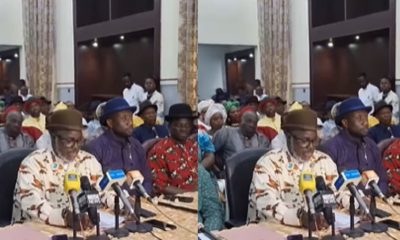
 News6 hours ago
News6 hours agoVIDEO: WATCH moment RIPCO leaders urge INC to shun violence over Rivers crisis
-

 News16 hours ago
News16 hours agoRivers Ijaw group cautions INC over calls to perpetuate violence
-
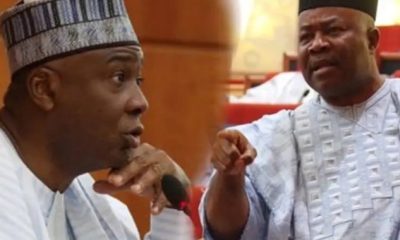
 News11 hours ago
News11 hours agoSaraki to Akpabio: Do not trivialize call for due process in Senate






